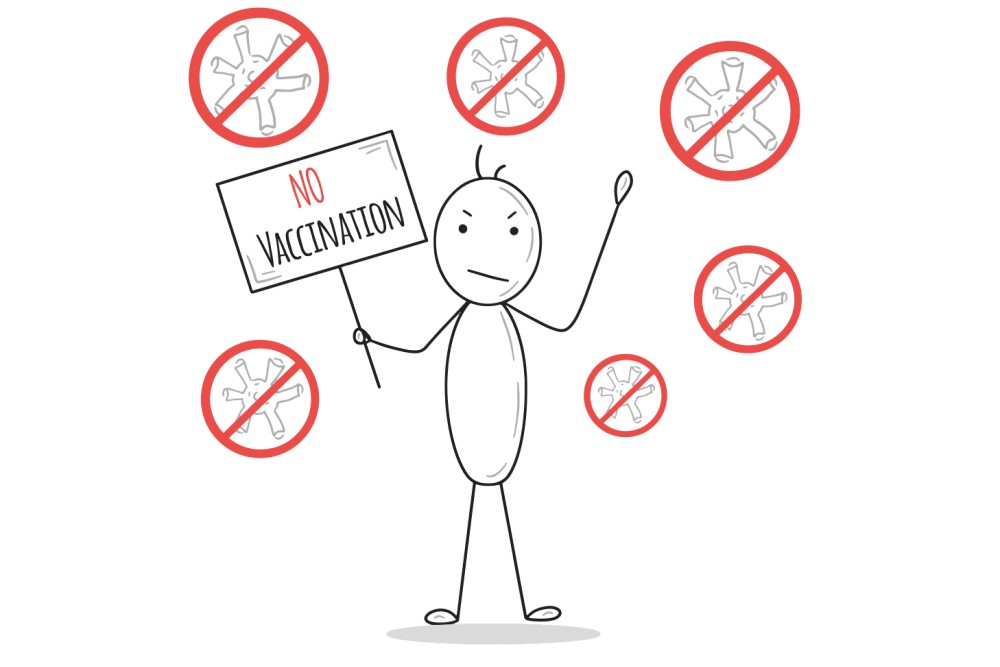A lot of the pleasure I take in watching sports comes not only from seeing the teams and people I like succeed, but also from seeing those I dislike fail. For instance, I will gladly watch the Blue Jays players hit an impressive string of dingers, but will equally enjoy seeing Ben Roethlisberger get sacked. Being a sports fan means feeling both pride and schadenfreude, and it comes with the territory of being a professional athlete that some people are going to love you, and some just aren’t.
While there are a lot of reasons one might have for disliking an athlete, the pandemic has brought about a new one: being unvaccinated. There have been a number of professional athletes who have come out as having not yet been vaccinated, for whatever reason. In particular, Bryson DeChambeau, an American professional golfer, stirred up controversy recently when he was unable to participate in the 2021 Olympics due to testing positive for COVID-19, and then did not get vaccinated when he returned. He raised the ire of many golf fans even more when he said that he did not regret failing to get vaccinated, stating that he thought that since he was “young and healthy” that he didn’t need it, and that he was waiting for the vaccine to become “really mainstream.”
The result was a serious increase in heckling during his most recent tour, which resulted in an altercation with a fan during which DeChambeau sought the assistance of the police (despite the incident only involving name-calling). Some reporting on the issue have referred to the incident and others like it as “bullying.”
Others, however, have taken the opposite stance. For instance, sports commentator Drew Magary has called for increased booing of unvaccinated athletes, and singles out additional players like NFL stars Sam Darnold, Adam Thielen, and MLB star Jason Heyward, among others. “Has coddling them worked?” asks Magary. “No. And do you know why? Because these athletes SUCK. They don’t want more information. They have it. Everyone does.”
So, what’s the right thing to do in this situation? As we saw above, certainly some amount of heckling of your least favorite athlete is okay: while I would never openly insult someone on the street, the context of being a fan is such that if I got the chance to attend a Pittsburgh Steelers game I would without hesitation tell Ben Roethlisberger that he’s the worst and not feel bad about it in the least. Clearly there is a limit to sports fandom: you can’t throw stuff or kick your least favorite player as they walk past you, and it would probably be too much to shout a string of obscenities in the vicinity of young and impressionable fans. So where’s the line? And has it moved at all when it comes to heckling on the basis of being unvaccinated?
On the one hand, there is a concern that heckling players for failing to be vaccinated goes too far, in that it attacks someone’s personal convictions. For instance, ESPN notes how some of DeChambeau’s fellow golfers have been sympathetic, feeling that it’s unfair for fans to heckle someone based off a personal choice. It does seem that it might be violating some norm of sports fandom to attack someone’s personal beliefs: yelling at someone that they’re washed up is within the realm of sports, but maybe it shouldn’t extend outside of that realm. If the heckling is not only personal but also incessant, then we can see how someone might interpret it as a kind of bullying.
On the other hand, one might think that unvaccinated professional athletes deserve some degree of derision, not only because they are putting their teammates and opponents – with whom, in the case of NFL players, they are very much in close personal contact – at risk, but also because as professional athletes they are, to some extent, role models, and thus face additional obligations to set a good example for their fans. They also do not seem to have any kind of excuse: on the assumption that they do not have legitimate medical reason not to get vaccinated, they have access to information about the safety of the vaccine, as well as ready access to the vaccine itself. Perhaps, then, heckling could help encourage them to change their mind.
But wait, isn’t it just mean to heckle someone excessively, regardless of the reason? If it makes someone feel bad, isn’t that sufficient reason not to do it?
Maybe not. For instance, consider Magary’s justification for increasing heckling:
“So boo them. Call them names. Get personal from the bleachers. Hold up a giant copy of your vaccination card to taunt them with. Let them understand that there are earned consequences for being so negligent. For endangering everyone around you and then having the naked gall to act like it’s some sacred private decision you just made.”
While Magary thus conceives of additional heckling as a kind of deserved punishment, perhaps we could think about it in a slightly different way: heckling unvaccinated athletes is not a mere expression of disliking someone because they play for a rival team, but as a kind of protest. As we saw above, there do seem to be legitimate reasons to be displeased with both the unvaccinated athletes themselves as well as the professional leagues that allow them to continue to play – i.e., that they are endangering their teammates and setting a bad example. Given that there’s more at stake than just the outcome of a golf tournament (or a football or baseball game) it may very well be warranted to make your opposition to them known.




